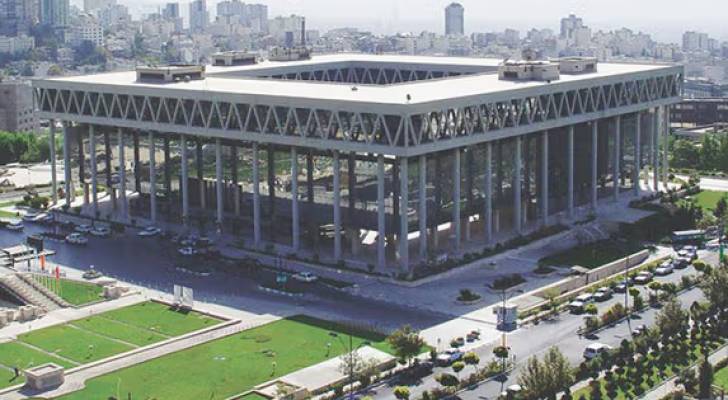Listen to the article
Iran has approved a new Hebrew-language television network as part of its expanding information warfare strategy against Israel, marking a significant escalation in the ongoing media conflict between the two adversaries.
The decision, ratified by Iranian President Masoud Pezeshkian in his capacity as chairman of the Supreme Council of the Cultural Revolution, establishes a state-run channel that will broadcast exclusively in Hebrew. The network will operate under the umbrella of the Islamic Republic of Iran Broadcasting (IRIB), the country’s official state media organization.
According to government documents, the channel’s explicit objective is to “respond to the media propaganda of the Zionist regime and its affiliates.” This phrasing aligns with Iran’s official stance of not recognizing Israel and refers to it only as the “Zionist regime.”
The timing of this media initiative appears strategically significant, coming as part of a broader post-conflict policy review aimed at promoting what Iranian officials term “social resilience.” This follows direct military confrontations between Iran and Israel during what Iranian sources described as the “12-day war” in June 2025.
Media analysts note that this represents a substantial expansion of Iran’s existing soft power strategy in the region. Tehran has previously experimented with Hebrew-language communication platforms, though on a more limited scale. In 2022, Tasnim News Agency, which maintains close ties to Iran’s Islamic Revolutionary Guard Corps (IRGC), launched a Hebrew-language website.
When that earlier initiative was unveiled, Tasnim CEO Majid Qolizadeh explicitly framed it as an effort to provide “true and authentic news” to Hebrew speakers while countering what he characterized as “massive and systematic censorship” regarding Palestinian issues.
Security and intelligence experts who monitor Middle Eastern media operations suggest the new television channel will likely focus on exploiting internal political and social divisions within Israeli society. Previous Iranian influence operations have utilized Hebrew-language platforms to distribute messaging critical of the Israeli government, with particular emphasis on opposition to Prime Minister Benjamin Netanyahu.
“This represents a sophisticated evolution in Iran’s information warfare capabilities,” said Dr. Meira Svirsky, a media analyst specializing in Middle Eastern communications strategies. “Broadcasting in Hebrew allows Iran to bypass traditional media gatekeepers and speak directly to Israeli citizens and the broader Hebrew-speaking diaspora.”
The Iranian initiative comes amid increasing recognition of the importance of information warfare alongside conventional military operations. Both Iran and Israel have developed extensive capabilities to influence public opinion, spread narratives favorable to their interests, and counter opposing messaging.
Iranian officials have stated that the channel’s intended audience includes “everybody speaking Hebrew in the world,” suggesting ambitions to reach not only Israelis but also Hebrew-speaking communities globally.
The development occurs against a backdrop of escalating tensions between Iran and Israel across multiple domains, including cyber operations, proxy conflicts, and occasional direct military confrontations. The media sphere has increasingly become another front in this ongoing conflict.
Media experts point out that the effectiveness of such state-run international broadcasting initiatives varies widely. While they provide governments with direct channels to present their narratives, viewers are often skeptical of content from nations with restricted domestic press freedoms.
The Iranian government has allocated resources to this project as part of a comprehensive package of national policies, though specific details about the channel’s budget, programming schedule, and launch date have not yet been made public.
This initiative mirrors similar strategies employed by other nations seeking to extend their media influence across linguistic and cultural boundaries, particularly in regions of strategic importance to their foreign policy objectives.
Fact Checker
Verify the accuracy of this article using The Disinformation Commission analysis and real-time sources.




10 Comments
This is a bold move by Iran, but I’m skeptical it will achieve the desired results. Trying to directly challenge Israel’s media narrative through a state-run Hebrew TV channel seems like a tall order. I’ll be curious to see how it’s received in Israel.
While I appreciate Iran’s desire to counter what it sees as ‘Zionist propaganda,’ launching a Hebrew TV channel seems like an unusual and potentially ineffective strategy. It will be interesting to monitor how this plays out and whether it has any meaningful impact.
It’s an interesting approach, but I have my doubts about the long-term effectiveness of this new Iranian TV channel. Directly engaging the Israeli public through media seems like a risky gambit that may end up backfiring.
Iran’s decision to launch a Hebrew TV channel is certainly an ambitious move, but I’m not convinced it will be an effective counter to perceived ‘Zionist propaganda.’ Time will tell if this strategy pays off for the Iranian government.
Interesting development. While I understand Iran’s desire to counter perceived Zionist propaganda, launching a Hebrew TV channel seems like an odd approach. I wonder how effective it will be in reaching the target audience and changing minds.
Iran’s move to establish a Hebrew-language TV channel is a bold one, but I’m skeptical it will achieve its stated goal of countering ‘Zionist propaganda.’ Trying to directly engage with the Israeli public through media seems like a risky strategy.
I agree. Iran’s approach here seems more likely to reinforce existing divisions than to foster mutual understanding.
This is an intriguing development in the ongoing media conflict between Iran and Israel. I wonder if the new channel will actually resonate with Israeli viewers or if it will just be dismissed as ‘Iranian propaganda.’
This appears to be another escalation in the ongoing media war between Iran and Israel. I’m curious to see how the new channel’s content will be received and what impact, if any, it has on public opinion in Israel.
While I understand Iran’s motivations, launching a Hebrew TV channel seems like an unusual tactic. It will be interesting to see how this plays out and whether it has any meaningful impact on the information landscape in Israel.